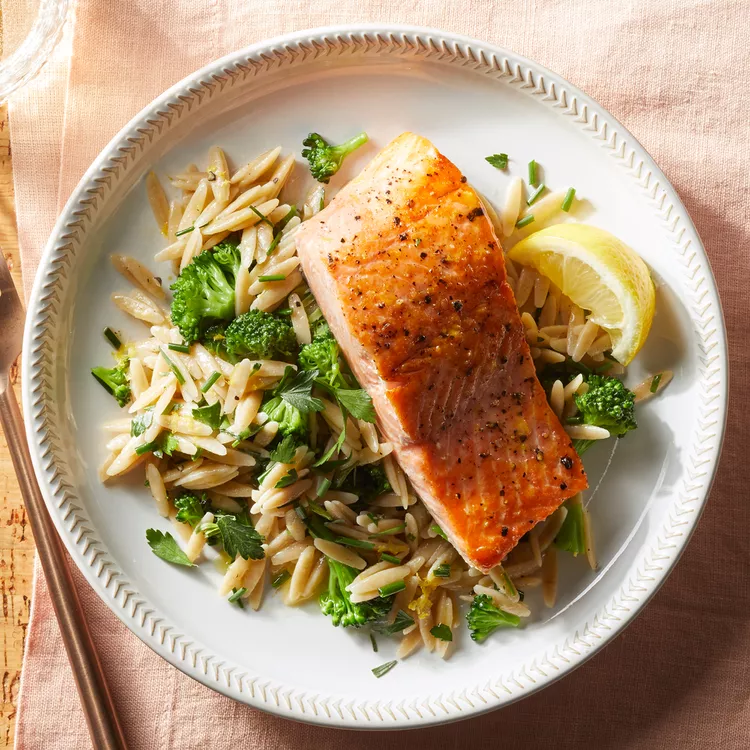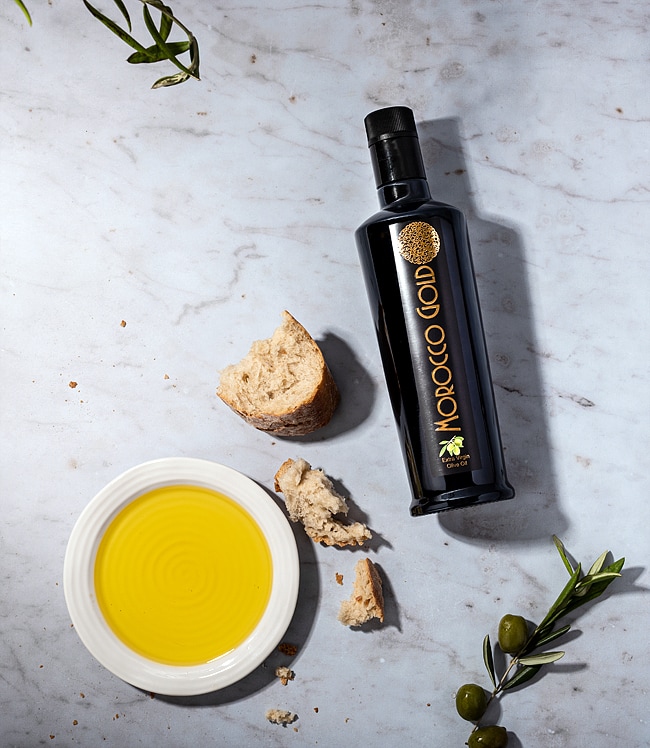How To Tackle Chronic Inflammation With The Mediterranean Diet And The Best Olive Oil
Updated November 13th 2023
If you are considering introducing anti-inflammatory foods to your diet, following the principles of The Mediterranean Diet, including extra virgin olive oil, is a great way to reap the health benefits.

Summary:
- New study says anti-inflammatory diet including extra virgin olive oil can improve overall health and wellbeing.
- Chronic Inflammation can be influenced by environmental toxins and foods like trans fats and processed meats.
- Healthy Fats like extra virgin olive oil have a wide range of health benefits, including improving mental health, chronic illness, gut health and your immune system.
- The anti-inflammatory diet can also tackle diseases such as Rheumatoid arthritis, dementia and depression.
Contents:
- Recent Report Show Anti-Inflammatory Diet Including Extra Virgin Olive Oil Can Improve Overall Health.
- What Is Chronic Inflammation And How Can Healthy Fats Like The Best Olive Oil Help?
- Where Does Extra Virgin Olive Oil Fit In The Anti-Inflammatory Diet?
- What Are The Health Benefits Of The Anti-Inflammatory Diet?
- Extra Virgin Olive Oil And Other Foods You Can Eat on the Anti- Inflammatory Diet
- What Foods Are Restricted On The Anti-Inflammatory Diet?
- How To Spot The Signs That An Anti-Inflammatory Diet Could Improve Your Health
Recent Report Show Anti-Inflammatory Diet Including Extra Virgin Olive Oil Can Improve Overall Health.
Are you feeling tired more often than not? Are you struggling to stay energized throughout the day? If so, perhaps it’s time to consider incorporating an anti-inflammatory diet into your daily routine. According to a recent article in The Manual, the anti-inflammatory diet has recently become one of the most popular ways to improve overall health and well-being – and for good reason!
By cutting out certain foods that can cause inflammation in our bodies, we can reduce pain and discomfort associated with a variety of chronic medical conditions.
In this blog post, we’ll cover what exactly an anti-inflammatory diet is, some common Mediterranean Diet style foods involved with it (such as extra virgin olive oil) as well as why this type of eating is beneficial for you.
What Is Chronic Inflammation And How Can Healthy Fats Like The Best Olive Oil Help?
Chronic inflammation is a term used to describe a long-lasting, low-grade inflammatory response in the body. This response can have serious implications for a person’s overall health and can contribute to the development of a range of health conditions, including heart disease, cancer, and diabetes. Risk factors for chronic inflammation include smoking, stress, obesity, lack of exercise, and exposure to environmental toxins. Diet can also play a significant role in inflammation, with foods like refined carbohydrates, trans fats, and processed meats promoting inflammation in the body, while foods like fruits, vegetables, and healthy fats like extra virgin olive oil can help reduce it. Understanding chronic inflammation and its risk factors can help individuals take steps to improve their health and reduce their risk of developing chronic health conditions.
Where Does Extra Virgin Olive Oil Fit In The Anti-Inflammatory Diet?

The Manual article describes an anti-inflammatory diet as one which focuses on eating foods that help reduce inflammation in the body and avoiding foods that promote inflammation. The diet emphasizes fruits, vegetables, lean protein, whole grains, nuts, seeds, spices, and healthy fats like extra virgin olive oil.
Foods like refined carbohydrates, fried foods, red and processed meats, and added sugars are restricted as they can trigger inflammation. The principles of the Mediterranean diet and the DASH diet are foundational to the anti-inflammatory diet.
What Are The Health Benefits Of The Anti-Inflammatory Diet?
Here are the key benefits of the anti-inflammatory diet as set out in this great article from The Manual:
- Anti-Inflammatory Diet may reduce the risk of chronic illness
An anti-inflammatory diet rich in fruits, vegetables, and anti-inflammatory fats has been associated with a lower risk of heart disease, diabetes, cancer, and autoimmune disorders. In large population studies, eating patterns like the Mediterranean diet that emphasizes produce, seafood, plant oils, and whole grains show cardiovascular benefits and longevity. The anti-inflammatory properties of these healthy foods could be the driver behind reduced chronic disease risk.
- Anti-Inflammatory Diet Supports gut and immune health
The anti-inflammatory diet includes many prebiotic foods like onions, garlic, bananas, and oats that support healthy gut bacteria. A healthy and diverse gut microbiome helps control inflammation and improves immunity against pathogens. Diets lacking in plant fiber and diversity are linked to higher inflammation and disease risk.
- Anti-Inflammatory Diet may improve arthritis and mental health
Early studies suggest anti-inflammatory diets could benefit mental health conditions like depression and anxiety that are linked to underlying inflammation.
For individuals with rheumatoid arthritis, closely following an anti-inflammatory diet is associated with reduced symptoms like tender and swollen joints compared to a regular diet. Less inflammation could lessen arthritis flares.
- Anti-Inflammatory Diet Promotes weight loss
Emphasizing produce, lean protein, and whole grains over processed foods can help with losing weight, especially belly fat. Reducing inflammation also helps regulate metabolism, appetite hormones, and blood sugar levels that manage weight. The high fiber and protein content provide satiety as well.
Extra Virgin Olive Oil And Other Foods You Can Eat on the Anti- Inflammatory Diet
Fruits, vegetables, whole grains, healthy proteins, and fats form the foundation of the anti-inflammatory diet, as they are amazing anti-inflammatory foods. Here is more guidance on what to eat.
- Fruits: You can eat all fruits on the anti-inflammatory diet, but focus mainly on berries, citrus fruits, cherries, apples, grapes, mangoes, and pineapples for their high antioxidant content. Have fruits with meals, as snacks, or for dessert.
- Vegetables: Aim for variety, eating different colors of vegetables. Get plenty of leafy greens like spinach, kale, lettuce, and Swiss chard, as well as broccoli, cauliflower, mushrooms, tomatoes, bell peppers, and squash. Fresh, frozen, or steamed veggies are great options.
- Grains: Choose whole grains like oats, brown rice, buckwheat, barley, quinoa, and bulgur wheat instead of refined grains, which are more inflammatory. Use whole grains in cereal, salads, sides, and main dishes.
- Proteins: Incorporate omega-3-rich proteins like salmon, sardines, mackerel, tuna, trout, and herring. Also, eat plant proteins like beans, lentils, chickpeas, tofu, and tempeh. Enjoy eggs, poultry, yogurt, and cheese in moderation. Limit red meat.
- Fats: Use olive oil, avocado oil, walnut oil, and flaxseed oil for cooking and dressings. Eat avocados, nuts, seeds, and nut butters in moderation. Avoid trans and saturated fats.
- Beverages: Drink plenty of water, herbal tea, seltzer or infused water, coffee, and tea in moderation. Limit sugary drinks and juices which are high in sugar. A glass of red wine can provide antioxidants.
What Foods Are Restricted On The Anti-Inflammatory Diet?
These pro-inflammatory foods are restricted on the diet:
- Fried foods: Avoid fried items like French fries, potato chips, donuts, etc., which contain trans and saturated fats that promote inflammation.
- Processed carbs: Swap out white bread, pasta, cereals, pastries, muffins, and crackers for whole-grain options which won’t spike blood sugar.
- Processed meats: Limit processed meats such as bacon, sausage, and pork charcuterie which are high in saturated fats. Opt for leaner poultry, fish, and plant proteins.
- Added sugars: Cut back on refined sugars in soda, candy, baked goods, and other sweets that can cause inflammation and weight gain.
- Trans fats: Avoid trans fats found in some kinds of margarine, packaged foods, and fast food, which drive inflammation. Check labels.
- Excess alcohol: Limit alcohol to one drink per day for women and two for men. Too much alcohol increases inflammation.
How To Spot The Signs That An Anti-Inflammatory Diet Could Improve Your Health
Chronic inflammation is a sneaky adversary in our daily lives. It can cause harm to our bodies, which may often go unnoticed. However, if you know what to look for, it is possible to detect the signs that your body is in need of a healthier diet. The nine signs of chronic inflammation include a lack of energy, allergies, frequent headaches, joint pain, skin irritations, mood changes, digestive problems, weight gain, and a weakened immune system. If you are experiencing any of these symptoms, it may be time to consider an anti-inflammatory diet. This type of eating plan can provide numerous health benefits, including a reduced risk of chronic diseases such as cancer and heart disease. By incorporating anti-inflammatory foods into your diet, you can help decrease inflammation levels in the body and reclaim your vitality.
Rheumatoid arthritis, dementia, depression
According to a recent report in Salon.com, there is mixed evidence for the role of anti-inflammatory diets in rheumatoid arthritis pain management. A recent 2021 systematic review (where researchers carefully group and examine the available evidence on a topic) found eating an anti-inflammatory diet likely leads to significantly lower pain in people with rheumatoid arthritis when compared with other diets.
However, the 12 studies included in the review had a high risk of bias — likely because people knew they were eating healthy foods — so the confidence in the evidence was low.
Inflammation is strongly implicated in the development of neurodegenerative diseases like Alzheimer’s disease and related dementia and evidence suggests anti-inflammatory diets might help to protect the brain.
A 2016 review showed an anti-inflammatory diet may be protective against cognitive impairment and dementia, but that further large randomized controlled trials are needed. A 2021 study followed 1,059 people for three years and observed their diet. They reported those with a greater pro-inflammatory diet had an increased risk of developing dementia.
Inflammation has also been linked with mental health, with people eating a pro-inflammatory diet reporting more symptoms of depression. Diet is the fundamental element of lifestyle approaches to managing anxiety and mental health.
More broadly, a 2021 review paper examined recent research related to anti-inflammatory diets and their effect on reducing inflammation associated with ageing. It found compounds commonly found in anti-inflammatory diets could help alleviate the inflammatory process derived from diseases and unhealthy diets.
Please refer to The Manual article including possible adverse effects here. The Salon.com article referenced above is republished from The Conversation under a Creative Commons license. Read the original article.
